Whenever scientists need assistance for imagining new possibilities, they turn to science fiction writing because this genre of speculative fiction helps them envision the possible futures. You know why? Because new ideas cannot come without a base. Scientists, with the help of science fiction, envision what can be possible by looking at the disconnected areas for insights. And because science writers are not tied to reality, they go wherever their imagination takes them to and create new visions of the future. So, they are the scientists who very often use those visions to go into that direction and that is how new discoveries are made – because they are able to capture a theory of possibility and make it possible. In other words, scientists like to take a ride on the imagination of fiction writers just to come up with new ideas. This is why most of the incredible things that we possess today have roots in science fiction – the wild imagination of human beings can take any random route and lead towards ideas of new and revolutionary things. According to Nesta researchers, everything from “Mars to flying cars to digital drugs, robot friends to teleportation, GPS to mobile communicators, smart food to mitochondrial reproduction techniques,” has roots in science fiction.
The ability to envision the future that has an important role in science fiction writing relies on a discipline known as World Building. The principles of World Building are now adapted by innovators and changemakers to help them imagine possibilities outside of their immediate reality, and to develop ideas and experiences. With the help of worldbuilding, they look forward to anticipating the future and look for less obvious and disconnected areas.
The worldbuilding process is truly a story-generating tool that has long played a role in popular media like video games or cinematic universes. And when the same principle is extended to business, this is called ‘sci-fi prototyping’ or ‘future casting’. The famous brands like Boeing, Ford motors, and Nike are turning towards these principles of worldbuilding to speculate their futures, trends, and possible advances in technology. Because they believe that unlike conventional ways of forecasting, worldbuilding involves an element of fiction that opens the door for infinite possibilities. Worldbuilding allows businesses to imagine and invent beyond the present limitations and realities. Unlike the traditional way of forecasting, world building brings diverse minds from diverse fields of knowledge together to contribute towards a collective vision of the future. When different professionals from different fields of knowledge help to shape a vision, they empower each other to form a shared vision and connect the dots from future worlds back to our present reality via policies, prototypes, narratives, and representations. Thus, it’s all about collaboration that allows worldbuilding to yield unexpected results.
In 2017, Leah Zaidi, from Ontario college of Art and design, researched the process science fiction authors adopt to imagine and build future worlds. She was curious how this same process could be extended to the real world to imagine and create new visions of the future. At the end of the research, she presented a model known as the Seven Foundations model.
This foresight model is helpful for coherent worldbuilding by employing the superstructure of culture (the fundamental parts that make a complex structure – Social, political, economic, philosophical, environmental, scientific and technological, artistic)..
This model diverts our focus towards designing coherent alternative realities and multiple futures by looking beyond our preconceived notions.
The what-if questions in sci-fi
Worldbuilding emerged from fantasy and sci-fi literature as a tool for writers to build vibrant environments or
‘sci-fi prototyping’ or ‘future casting’. The famous brands like Boeing, Ford motors, and Nike are turning towards these principles of worldbuilding to speculate their futures, trends, and possible advances in technology. Because they believe that unlike conventional ways of forecasting, worldbuilding involves an element of fiction that opens the door for infinite possibilities. Worldbuilding allows businesses to imagine and invent beyond the present limitations and realities. Unlike the traditional way of forecasting, world building brings diverse minds from diverse fields of knowledge together to contribute towards a collective vision of the future. When different professionals from different fields of knowledge help to shape a vision, they empower each other to form a shared vision and connect the dots from future worlds back to our present reality via policies, prototypes, narratives, and representations. Thus, it’s all about collaboration that allows worldbuilding to yield unexpected results.
In 2017, Leah Zaidi, from Ontario college of Art and design, researched the process science fiction authors adopt to imagine and build future worlds. She was curious how this same process could be extended to the real world to imagine and create new visions of the future. At the end of the research, she presented a model known as the Seven Foundations model.
This foresight model is helpful for coherent worldbuilding by employing the superstructure of culture (the fundamental parts that make a complex structure – Social, political, economic, philosophical, environmental, scientific and technological, artistic)..
This model diverts our focus towards designing coherent alternative realities and multiple futures by looking beyond our preconceived notions.
The what-if questions in sci-fi
Worldbuilding emerged from fantasy and sci-fi literature as a tool for writers to build vibrant environments or a vivid setting for their story. And now this same principle is leveraged by businesses to spark innovation in policies, business models, industrial technologies and so on…. In other words, businesses are adapting this principle to imagine new possibilities and develop innovative ideas and experiences that tend to step outside of previously established boundaries of possibilities.
World Building defines a setting to influence the characters’ actions and moods in a story. When used for getting insights into the future, It helps us formulate important “What if?” questions. These “What if?” questions drive us to think beyond our immediate reality and bring up new perspectives on our future. If we employ these questions to discuss the issues we face today, we can get perspectives on their real-world solutions.
These what-if questions can truly empower us to think differently in order to anticipate future issues and their solutions, and this is how anyone can advance his ideation journey.
Worldbuilding presents a different way of thinking that lets us think bigger and anticipate plausible
a vivid setting for their story. And now this same principle is leveraged by businesses to spark innovation in policies, business models, industrial technologies and so on…. In other words, businesses are adapting this principle to imagine new possibilities and develop innovative ideas and experiences that tend to step outside of previously established boundaries of possibilities.
World Building defines a setting to influence the characters’ actions and moods in a story. When used for getting insights into the future, It helps us formulate important “What if?” questions. These “What if?” questions drive us to think beyond our immediate reality and bring up new perspectives on our future. If we employ these questions to discuss the issues we face today, we can get perspectives on their real-world solutions.
These what-if questions can truly empower us to think differently in order to anticipate future issues and their solutions, and this is how anyone can advance his ideation journey.
Worldbuilding presents a different way of thinking that lets us think bigger and anticipate plausible future issues as well as emerging opportunities, and improves our creativity. The worldbuilding process has the power to influence everything and bring innovation in every area of the business, ranging from corporate culture to customer experience. With the help of world building, and asking questions like what-if and what could be, companies could get new perspectives on the customer’s world and improve the overall experience of their products or services for their customers.
By leveraging worldbuilding methods, we get insights into our future lives and the possible issues and problems that may come along our way, that helps us come up with new and innovative ideas.
It’s time to acknowledge the power of science fiction and world building to imagine new ‘universes of the mind’, both fictional and real. Yes, by leveraging the worldbuilding principles, you may come up with new images of the future, and imagine possibilities no one has imagined before.
If you want to advance your Ideation or innovation journey, join the TDN platform today.
Sign up now to come up with a next big idea!
Already have a breakthrough idea? Bring it to life Now! Schedule a free consultation.
Follow us:
Facebook : Think Different Nation
Instagram : Think Different Nation
Twitter : @TDN_Podcast
future issues as well as emerging opportunities, and improves our creativity. The worldbuilding process has the power to influence everything and bring innovation in every area of the business, ranging from corporate culture to customer experience. With the help of world building, and asking questions like what-if and what could be, companies could get new perspectives on the customer’s world and improve the overall experience of their products or services for their customers.
By leveraging worldbuilding methods, we get insights into our future lives and the possible issues and problems that may come along our way, that helps us come up with new and innovative ideas.
It’s time to acknowledge the power of science fiction and world building to imagine new ‘universes of the mind’, both fictional and real. Yes, by leveraging the worldbuilding principles, you may come up with new images of the future, and imagine possibilities no one has imagined before.
If you want to advance your Ideation or innovation journey, join the TDN platform today.
Sign up now to come up with a next big idea!
Already have a breakthrough idea? Bring it to life Now! Schedule a free consultation.
Follow us:
Facebook : Think Different Nation
Instagram : Think Different Nation
Twitter : @TDN_Podcast
 ‘sci-fi prototyping’ or ‘future casting’. The famous brands like Boeing, Ford motors, and Nike are turning towards these principles of worldbuilding to speculate their futures, trends, and possible advances in technology. Because they believe that unlike conventional ways of forecasting, worldbuilding involves an element of fiction that opens the door for infinite possibilities. Worldbuilding allows businesses to imagine and invent beyond the present limitations and realities. Unlike the traditional way of forecasting, world building brings diverse minds from diverse fields of knowledge together to contribute towards a collective vision of the future. When different professionals from different fields of knowledge help to shape a vision, they empower each other to form a shared vision and connect the dots from future worlds back to our present reality via policies, prototypes, narratives, and representations. Thus, it’s all about collaboration that allows worldbuilding to yield unexpected results.
In 2017, Leah Zaidi, from Ontario college of Art and design, researched the process science fiction authors adopt to imagine and build future worlds. She was curious how this same process could be extended to the real world to imagine and create new visions of the future. At the end of the research, she presented a model known as the Seven Foundations model.
This foresight model is helpful for coherent worldbuilding by employing the superstructure of culture (the fundamental parts that make a complex structure – Social, political, economic, philosophical, environmental, scientific and technological, artistic)..
This model diverts our focus towards designing coherent alternative realities and multiple futures by looking beyond our preconceived notions.
The what-if questions in sci-fi
Worldbuilding emerged from fantasy and sci-fi literature as a tool for writers to build vibrant environments or
‘sci-fi prototyping’ or ‘future casting’. The famous brands like Boeing, Ford motors, and Nike are turning towards these principles of worldbuilding to speculate their futures, trends, and possible advances in technology. Because they believe that unlike conventional ways of forecasting, worldbuilding involves an element of fiction that opens the door for infinite possibilities. Worldbuilding allows businesses to imagine and invent beyond the present limitations and realities. Unlike the traditional way of forecasting, world building brings diverse minds from diverse fields of knowledge together to contribute towards a collective vision of the future. When different professionals from different fields of knowledge help to shape a vision, they empower each other to form a shared vision and connect the dots from future worlds back to our present reality via policies, prototypes, narratives, and representations. Thus, it’s all about collaboration that allows worldbuilding to yield unexpected results.
In 2017, Leah Zaidi, from Ontario college of Art and design, researched the process science fiction authors adopt to imagine and build future worlds. She was curious how this same process could be extended to the real world to imagine and create new visions of the future. At the end of the research, she presented a model known as the Seven Foundations model.
This foresight model is helpful for coherent worldbuilding by employing the superstructure of culture (the fundamental parts that make a complex structure – Social, political, economic, philosophical, environmental, scientific and technological, artistic)..
This model diverts our focus towards designing coherent alternative realities and multiple futures by looking beyond our preconceived notions.
The what-if questions in sci-fi
Worldbuilding emerged from fantasy and sci-fi literature as a tool for writers to build vibrant environments or a vivid setting for their story. And now this same principle is leveraged by businesses to spark innovation in policies, business models, industrial technologies and so on…. In other words, businesses are adapting this principle to imagine new possibilities and develop innovative ideas and experiences that tend to step outside of previously established boundaries of possibilities.
World Building defines a setting to influence the characters’ actions and moods in a story. When used for getting insights into the future, It helps us formulate important “What if?” questions. These “What if?” questions drive us to think beyond our immediate reality and bring up new perspectives on our future. If we employ these questions to discuss the issues we face today, we can get perspectives on their real-world solutions.
These what-if questions can truly empower us to think differently in order to anticipate future issues and their solutions, and this is how anyone can advance his ideation journey.
Worldbuilding presents a different way of thinking that lets us think bigger and anticipate plausible
a vivid setting for their story. And now this same principle is leveraged by businesses to spark innovation in policies, business models, industrial technologies and so on…. In other words, businesses are adapting this principle to imagine new possibilities and develop innovative ideas and experiences that tend to step outside of previously established boundaries of possibilities.
World Building defines a setting to influence the characters’ actions and moods in a story. When used for getting insights into the future, It helps us formulate important “What if?” questions. These “What if?” questions drive us to think beyond our immediate reality and bring up new perspectives on our future. If we employ these questions to discuss the issues we face today, we can get perspectives on their real-world solutions.
These what-if questions can truly empower us to think differently in order to anticipate future issues and their solutions, and this is how anyone can advance his ideation journey.
Worldbuilding presents a different way of thinking that lets us think bigger and anticipate plausible future issues as well as emerging opportunities, and improves our creativity. The worldbuilding process has the power to influence everything and bring innovation in every area of the business, ranging from corporate culture to customer experience. With the help of world building, and asking questions like what-if and what could be, companies could get new perspectives on the customer’s world and improve the overall experience of their products or services for their customers.
By leveraging worldbuilding methods, we get insights into our future lives and the possible issues and problems that may come along our way, that helps us come up with new and innovative ideas.
It’s time to acknowledge the power of science fiction and world building to imagine new ‘universes of the mind’, both fictional and real. Yes, by leveraging the worldbuilding principles, you may come up with new images of the future, and imagine possibilities no one has imagined before.
If you want to advance your Ideation or innovation journey, join the TDN platform today.
Sign up now to come up with a next big idea!
Already have a breakthrough idea? Bring it to life Now! Schedule a free consultation.
Follow us:
Facebook : Think Different Nation
Instagram : Think Different Nation
Twitter : @TDN_Podcast
future issues as well as emerging opportunities, and improves our creativity. The worldbuilding process has the power to influence everything and bring innovation in every area of the business, ranging from corporate culture to customer experience. With the help of world building, and asking questions like what-if and what could be, companies could get new perspectives on the customer’s world and improve the overall experience of their products or services for their customers.
By leveraging worldbuilding methods, we get insights into our future lives and the possible issues and problems that may come along our way, that helps us come up with new and innovative ideas.
It’s time to acknowledge the power of science fiction and world building to imagine new ‘universes of the mind’, both fictional and real. Yes, by leveraging the worldbuilding principles, you may come up with new images of the future, and imagine possibilities no one has imagined before.
If you want to advance your Ideation or innovation journey, join the TDN platform today.
Sign up now to come up with a next big idea!
Already have a breakthrough idea? Bring it to life Now! Schedule a free consultation.
Follow us:
Facebook : Think Different Nation
Instagram : Think Different Nation
Twitter : @TDN_Podcast 